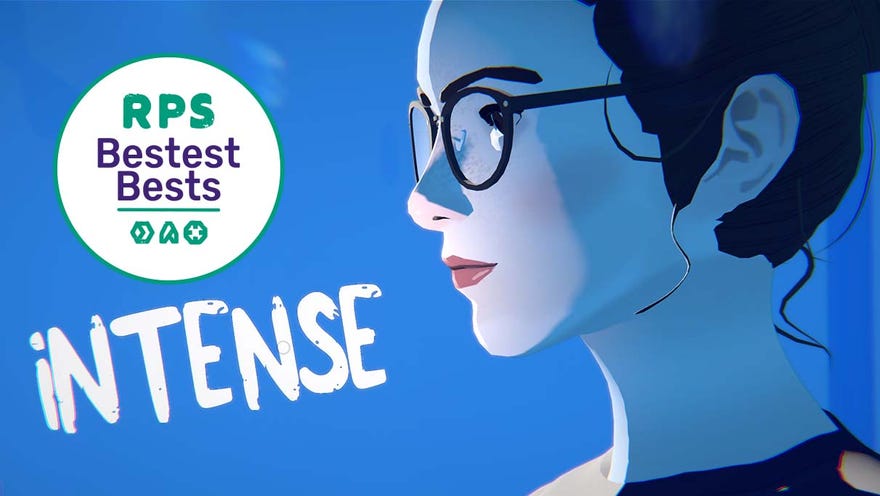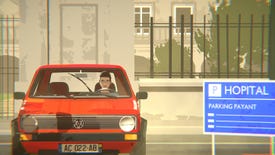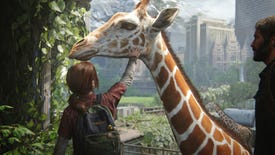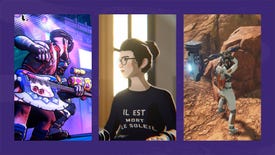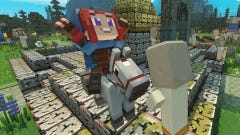The Wreck review: a raw road trip down memory lane
Crash and learn
As video game time loops go, The Wreck's endlessly repeating car crash has to be one of the worst fates to get stuck in. Sure, it's not quite as bad as 'death by exploding sun' in Outer Wilds, say, but when each crash is also accompanied by heroine Junon reliving a harrowing memory from her past that she'll need to sort through and analyse before she's able to (quite literally) move on with her life, I reckon that one-two punch of sudden physical trauma and deep, emotional soul-bearing is probably just about on par with having skin and muscle seared off your own bones by a honking great supernova. You know, figuratively speaking.
Then again, calling The Wreck a time loop game isn't entirely accurate. Really, it's a 3D visual novel with a clear start, middle and end, but it's one that borrows the form and structure of looping memories to elegantly excavate Junon's personal history as she tries to get a better understanding of her past and present. It's more like a series of little time loops in miniature, and they're all building up to Junon making a single, life-changing decision that will have far-reaching consequences for her future.
And what a decision it is, too - certainly not one you'd want to make lying down, and yet that's where we find Junon at the start of this terrible day: on the floor on a nasty hospital bathroom having just found out her mother's on critical life support after suffering a brain aneurysm. That's not even the half of it, though. It also turns out that Junon's now in charge of deciding what happens next regarding her mother's hospital care - an agreement that never took place in person, but rather by her mum forging her daughter's signature on the hospital forms.
Unsurprisingly, Junon's not best pleased about this. She has a difficult relationship with her mum, or Marie as she prefers to call her, and she can't figure out for the life of her why she's been entrusted with such a responsibility. Not when her sister Diane has always been the one who's been closest with her mum, or when her mum's spent the better part of Junon's adult life berating nearly every single decision she's ever made, from her choice of career as a struggling screenwriter to her own style of parenting. It's a dilemma Junon will spend the rest of the day trying to work out, and how she - an estranged daughter with heaps of her own emotional baggage to deal with, much of which is directed solely towards her mother - can possibly determine what's right or what Marie would have wanted.
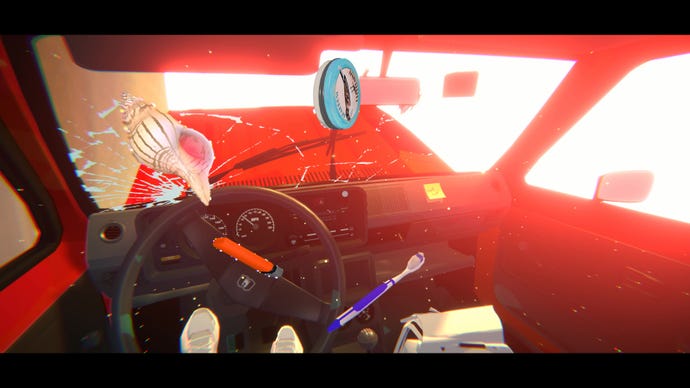
As with any kind of good therapy, Junon's soul-searching begins with a lot of talking, first with the doctor and then with members of her close family - Diane, her ex-husband Alex, and so on. This dialogue mostly plays out automatically, but at certain points you can also choose to hear Junon's internal monologue by selecting large words that crop up around her environment. These interior thoughts often add extra flavour to the real-life chats Junon's having at that particular moment, but they can also bleed through and break into conversation, informing a handful of responses you're able to pick from at certain moments.
Some words you won't be able to click on at all, with them disappearing just as quickly as you've glimpsed them. At these points, Junon will get flustered and angry, and she'll flee the scene in anger, getting into her car and driving off, triggering the next phase of her time looping memory trawl. Out on the road, she'll repeatedly swerve to avoid hitting a deer, crashing her car and sending the possessions in her bag flying in front of her face. As time slows to a crawl, each of these objects lets her explore a distinct memory from her past, and once she's examined it in full, time resets back to where she was. Now, armed with renewed emotional fortitude, she's able to confront the words that escaped her earlier and steer the conversation in a more fruitful, productive direction.
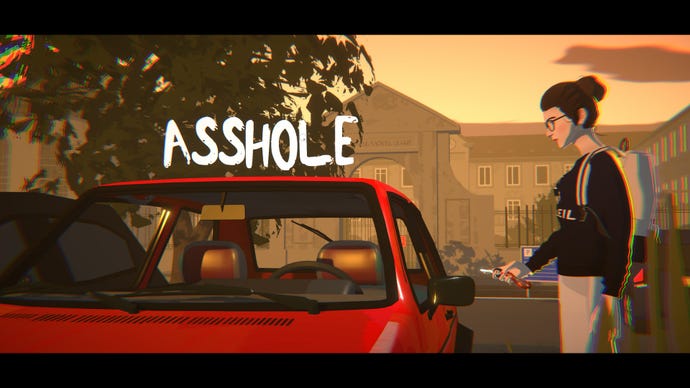
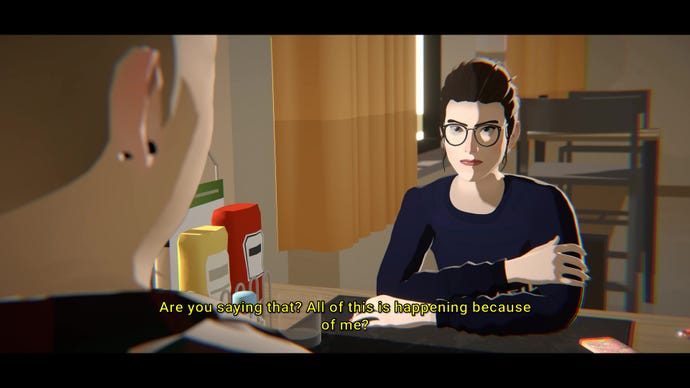
Sure, there's a certain level of artifice involved in the way Junon's able to dwell on certain thoughts and memories mid-conversation, endlessly analysing and mulling over different, perfectly formed responses while the other person's sitting there waiting for an answer, but the overall presentation still feels natural and organic. This is thanks in no small part to Sharlit Deyzac's spirited performance as Junon, although in truth, the whole voice cast deserves special mention here, as their nuanced delivery does a brilliant job of filling in the gaps left behind by its stilted, Heaven's Vault-style animation (which is no surprise, given The Wreck uses the exact same game making tools). Some will probably find its slideshow-ish nature just as jarring as it was in Inkle's interstellar translation adventure, but it does lend The Wreck a suitably storyboard-style quality that feels right at home with the way the story's actually framed - that is, when you first start up The Wreck, you're actually playing as Junon writing a screenplay of these events on her laptop.
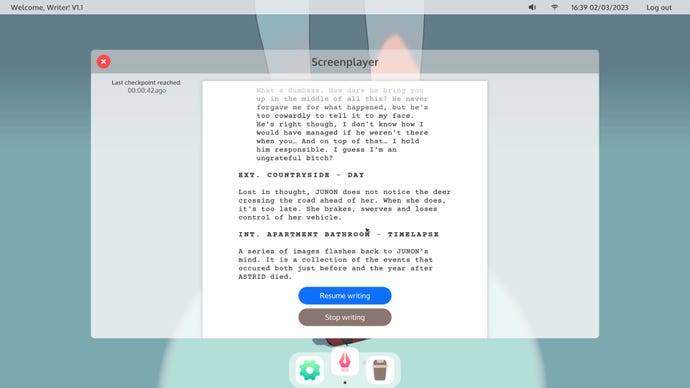
For me, it's this tension of writing, creating and using your life's experiences to inspire great art that really sits at the heart of The Wreck, and it's explored in brilliant, forensic detail throughout the game's five-hour run-time. It's still a wonderfully sensitive examination of grief, family, toxic relationships and personal discovery, but it does so through the lens of grappling with the burden, fallout and exhilarating rush of the creative process, too - and the effect that can have on those around you. It's there in Marie's work as a world-famous artist (explored beautifully in a revolving art exhibition in one of Junon's looping memories), and it's there in the way Junon is writing this entire script, using all the conventions of film, TV and games to create an affecting, warts and all story as she faces up to her past mistakes.
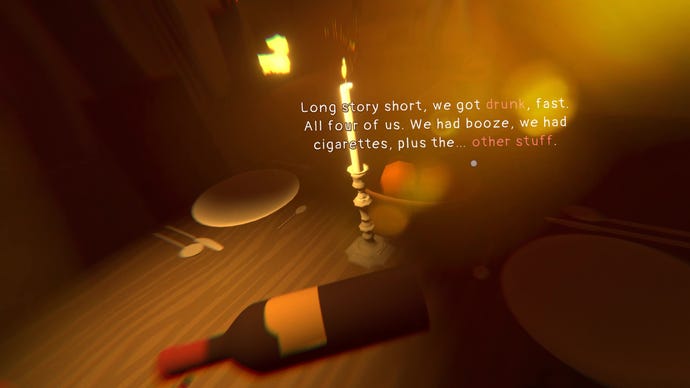
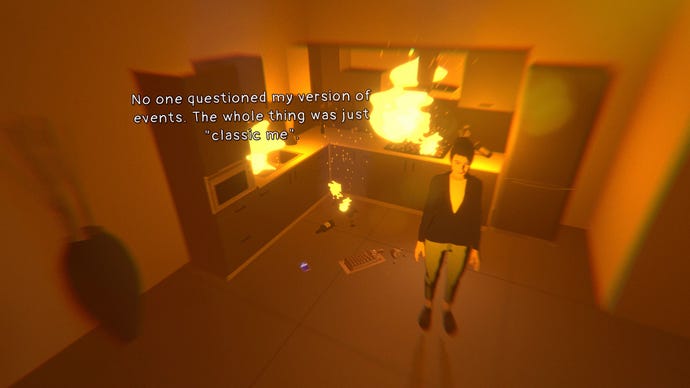
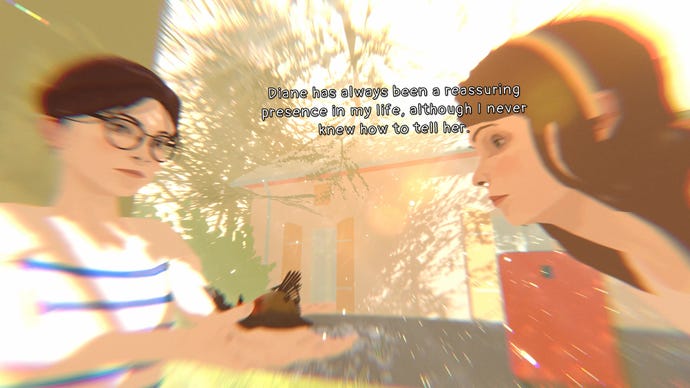
And those past mistakes are explored in classic, obsessive detail - the same moment going around and around in Junon's head until she dissects every last detail of it. The way one object bleeds into the next instantly calls to mind last year's excellent Hindsight, but using the right and left mouse buttons to rewind and fast forward time also has a touch of Life Is Strange about it, although here you're hunting down objects that will trigger yet more words and thoughts to appear onscreen rather than actually altering the events being depicted. It doesn't take much to find these words, but the arc and swell of each scene, its swooping camera angles and the artful construction of each memory all work together to deliver an achingly powerful gut punch every single time. I'd be loathe to spoil any particular details, but watch out for the nested doll's house and snapshot bathroom scenes. They're really something special.
As you might expect from the makers of Bury Me, My Love, this is a game that cuts deep, and by the time I got to the end of Junon's journey, I really felt like I'd done some soul-searching of my own. Crucially, though, this isn't a game that mires itself in its own misery. It's not a laugh riot by any means, but there's an enduring dynamism and sense of optimism to be found among its emotional wreckage, and the more Junon discovers about herself, the more enthralling her story becomes. There's real heart to be found in The Wreck, and its climactic ending is so striking and cathartic that you can't help but come away feeling like you know yourself a teeny bit better now than you did going in. David Cage wishes, is what I'm saying, and the next time there's a debate over who the great purveyors are of mature, emotional storytelling in games, The Wreck should absolutely be at the top of that list. Not Naughty Dog, or Quantic Dream, but this. In that sense, perhaps I was a little hasty calling this the worst possible time loop to get trapped in. If playing this can cast a light as bright as a supernova'd sun on what it means to navigate the highs and lows of adult life and still come out the other side not a complete and total, well, wreck, I'd say that's time pretty well spent.
